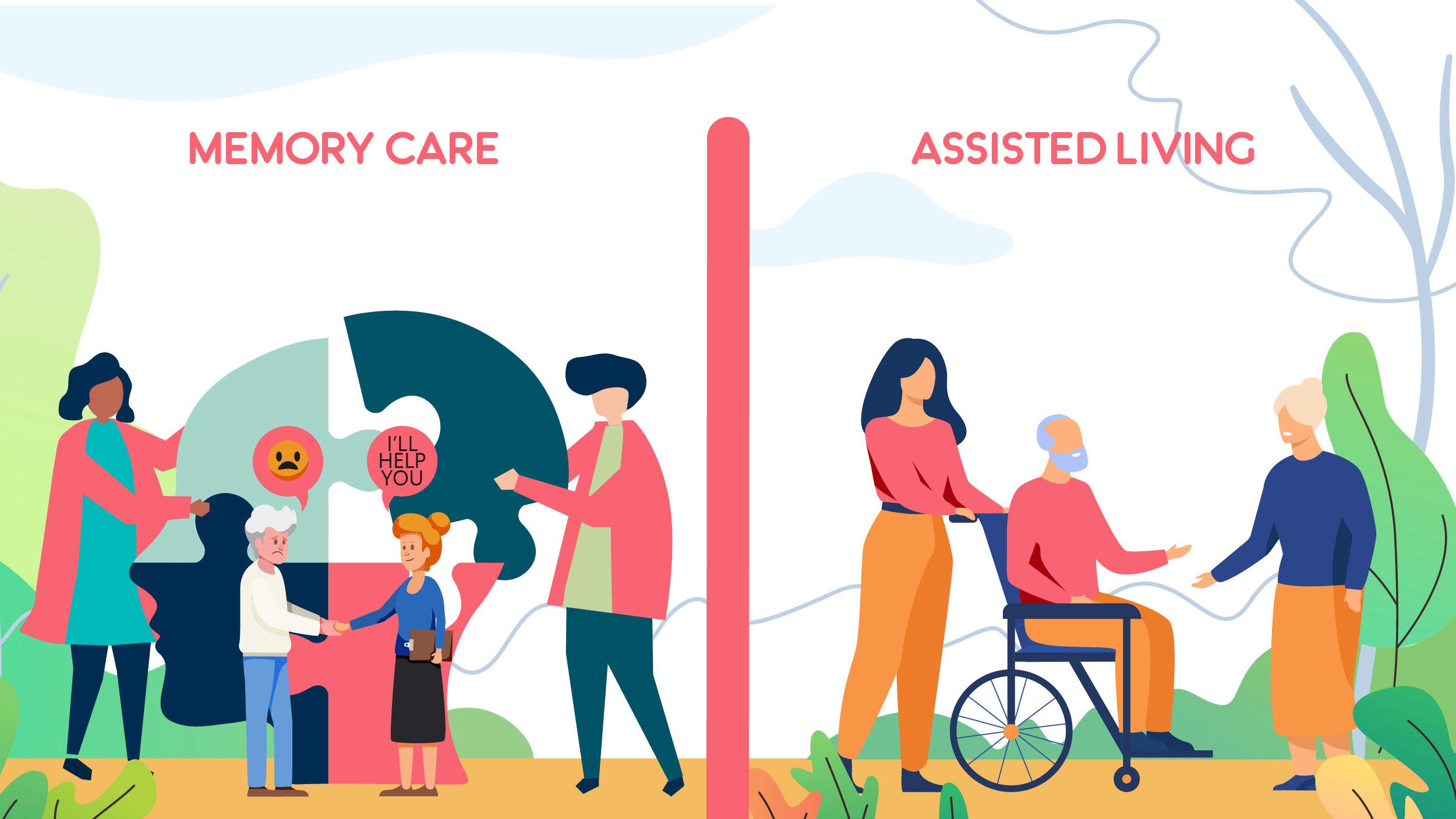Family-Oriented Facilities Offering Personalized Alzheimers Care Charlotte
Creating a Safe and Helpful Atmosphere for Alzheimer's Treatment
The development of a safe and encouraging atmosphere for individuals with Alzheimer's is critical in enhancing their lifestyle. This includes not only physical adaptations within the home, such as minimizing risks and including familiar elements, yet also the execution of structured routines and significant activities that deal with their cognitive demands. Comprehending the emotional and emotional dimensions of treatment can significantly influence their sense of safety and link. Discovering these complex techniques can disclose essential insights right into effective caregiving strategies that might transform the everyday experiences of both individuals and caretakers.
Understanding Alzheimer's Requirements
Frequently, people with Alzheimer's disease exhibit a range of needs that need tailored strategies to care. As the problem proceeds, cognitive decrease shows up in different means, affecting memory, reasoning, and also the capability to carry out daily activities. Caregivers must identify these developing needs to provide ideal support and guarantee a better of life for those influenced.
One essential facet of comprehending Alzheimer's requirements is recognizing the relevance of regular and familiarity. Individuals usually find convenience in well established patterns, which can decrease stress and anxiety and confusion. Caretakers need to make every effort to produce organized day-to-day routines that incorporate purposeful activities straightened with the individual's passions and abilities.
In addition, efficient communication is paramount. People with Alzheimer's may have a hard time to share themselves or comprehend intricate language. Caregivers need to utilize straightforward, clear language, use non-verbal cues, and practice energetic listening to promote understanding and link.
Caretakers should encourage interaction in area tasks or family gatherings, promoting a sense of belonging and objective. Recognizing these diverse needs is vital for developing a supportive care atmosphere.
Designing a Safe Home
Developing a safe home for individuals with Alzheimer's condition is important to minimizing threats and promoting freedom. Make sure that pathways are well-lit and clear, as proper illumination minimizes disorientation and enhances flexibility.
Integrating flexible functions is also essential. Mount grab bars in restrooms and near staircases, and think about making use of non-slip mats in wet areas. Additionally, utilizing contrasting colors for floors and wall surfaces can aid in identifying spaces, aiding to reduce complication.
Familiarity is essential for people with Alzheimer's. Customizing the setting with familiar items and pictures can reinforce a sense of belonging and security - Alzheimers Care Charlotte. It is likewise useful to have a designated area for everyday tasks, such as reading or crafting, which can supply framework to their day
Lastly, executing a secure outdoor area enables safe exploration while getting in touch with nature. By attentively creating the home setting, caretakers can significantly enhance the high quality of life for people coping with Alzheimer's disease.
Enhancing Communication Abilities

Non-verbal interaction, including faces, gestures, and touch, plays a critical role in sharing empathy and understanding. Maintaining eye contact and a calm demeanor can improve the convenience level of the individual, advertising a useful link feeling of safety and security.
In addition, it is vital to exercise active listening. This entails being completely present, revealing persistence, and allowing the individual to reveal themselves without interruption. Rep may be necessary; caretakers need to be prepared to take another look at topics or inquiries, as individuals with Alzheimer's might have problem with memory recall.
Furthermore, utilizing aesthetic aids or signs, such as photos or acquainted objects, can promote recognition and involvement. Inevitably, improving interaction skills has to do with building depend on and creating an atmosphere where people feel listened to, valued, and understood, consequently improving their high quality of life.
Urging Social Interaction
Promoting significant social interactions can substantially enhance the wellness of people with Alzheimer's condition. Engaging with others not only assists battle sensations of isolation however additionally stimulates cognitive feature and psychological health. Structured social activities, such as team crafts, games and arts, or music therapy, produce possibilities for homeowners to get in touch with peers and caregivers, which can cause boosted state of mind and lowered anxiousness.
Producing a welcoming environment that encourages socializing is crucial. This can be achieved by organizing common areas that assist in communication, such as relaxing seating locations or activity rooms. Additionally, incorporating culturally appropriate and familiar tasks can motivate and spark memories involvement, enabling people find more information with Alzheimer's to really feel even more linked to their previous experiences.
Furthermore, caregivers need to be trained to acknowledge and advertise social interaction amongst locals. By focusing on social interaction, we can considerably improve the lives of those living with Alzheimer's, promoting a feeling of community and belonging.
Sustaining Caregiver Health

To support caretakers, companies should supply regular training and educational resources to improve their understanding of Alzheimer's condition and caregiving strategies. Providing accessibility to respite care services allows caregivers to other take required breaks, lowering anxiety and tiredness - Alzheimers Care Charlotte. In addition, cultivating an area through support groups can facilitate emotional sharing and the exchange of functional suggestions amongst caretakers, creating a network of mutual support
Psychological wellness sources, such as therapy solutions, can likewise be crucial in resolving the psychological toll caregiving can take. By focusing on caretaker wellness, we produce a more sustainable caregiving environment that not just benefits the caregivers themselves but also boosts the total top quality of treatment obtained by people with Alzheimer's. Inevitably, sustaining caregivers is a crucial part in promoting a thoughtful and reliable care setup.
Verdict
In final thought, the creation of a secure and encouraging setting for people with Alzheimer's is vital to improving their lifestyle. By focusing on security with thoughtful style, promoting emotional wellness with familiar elements, and advertising interaction through structured regimens, caretakers can significantly influence the overall experience of those influenced by this condition. Supporting caretaker well-being is critical, as it eventually adds to a much more effective and caring treatment environment.
Repeating may be necessary; caretakers need to be prepared to review subjects or questions, as people with Alzheimer's may struggle with memory recall.
